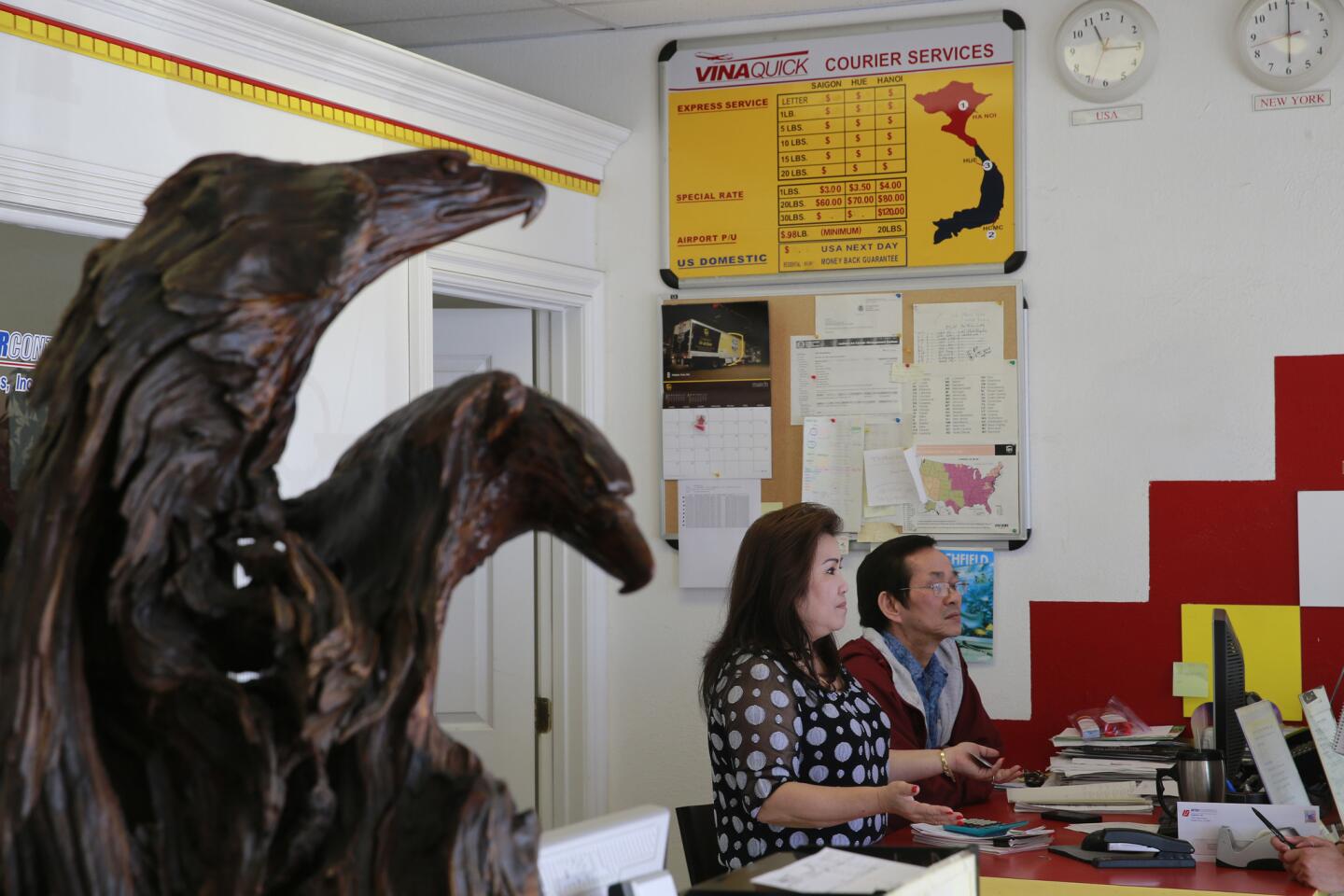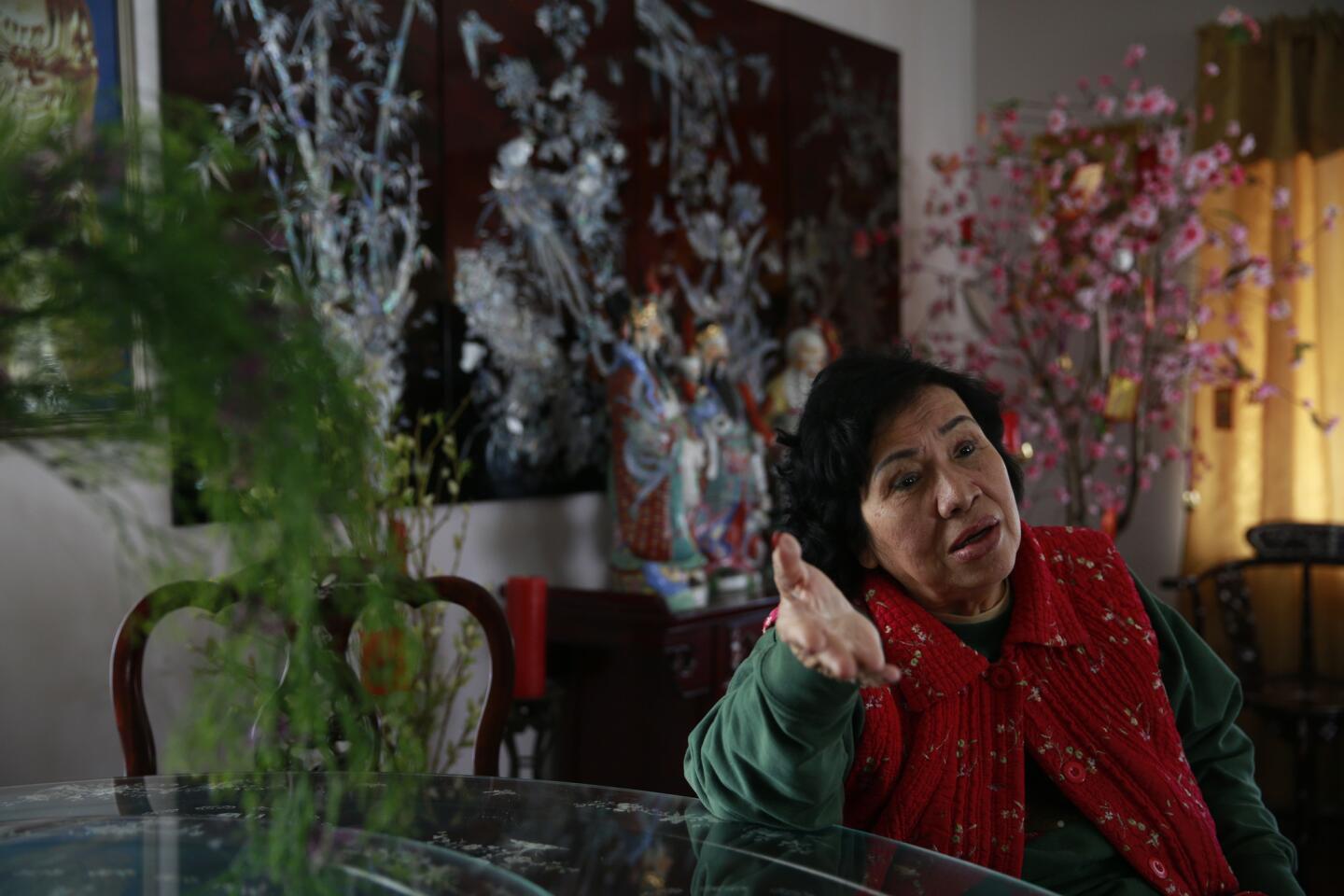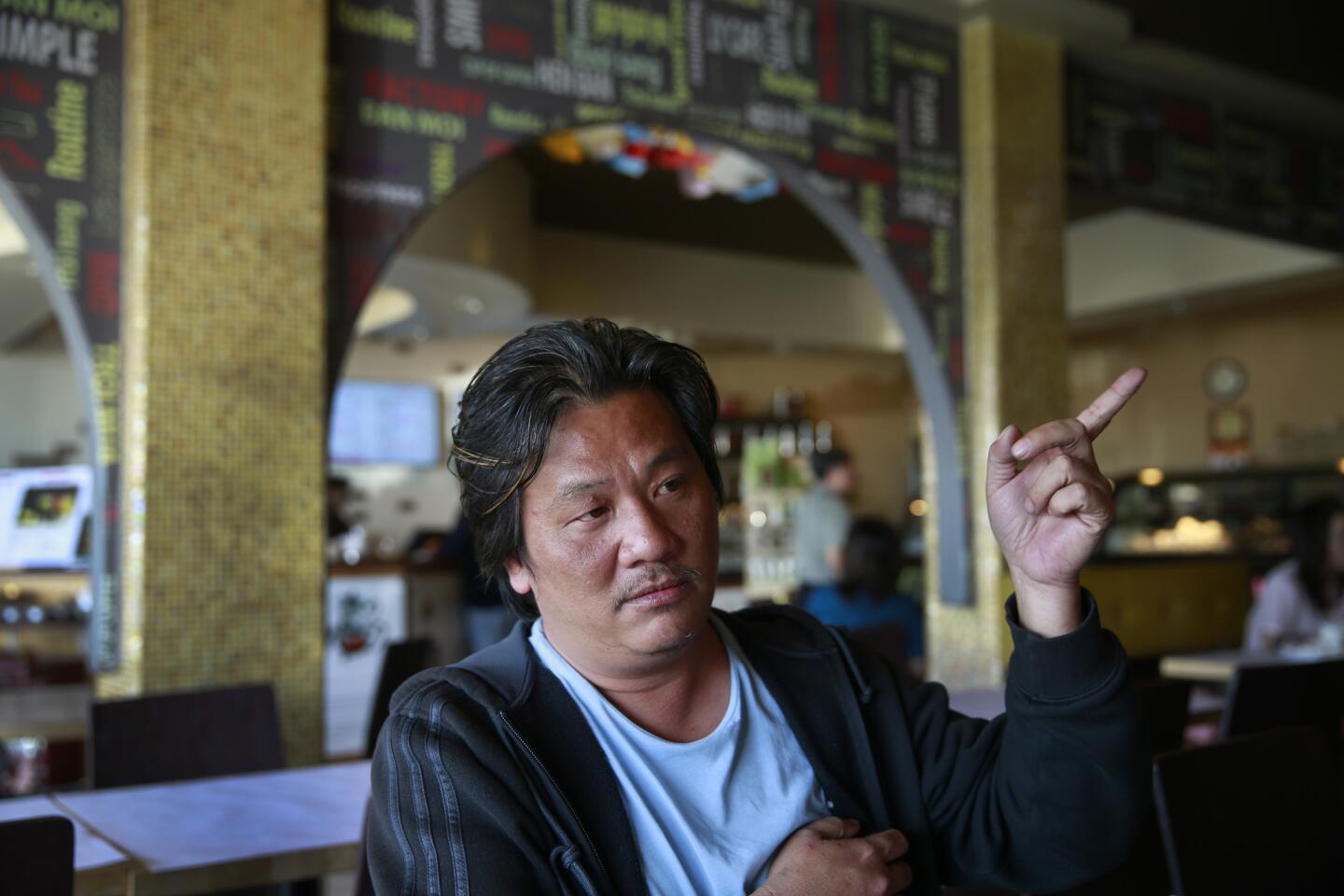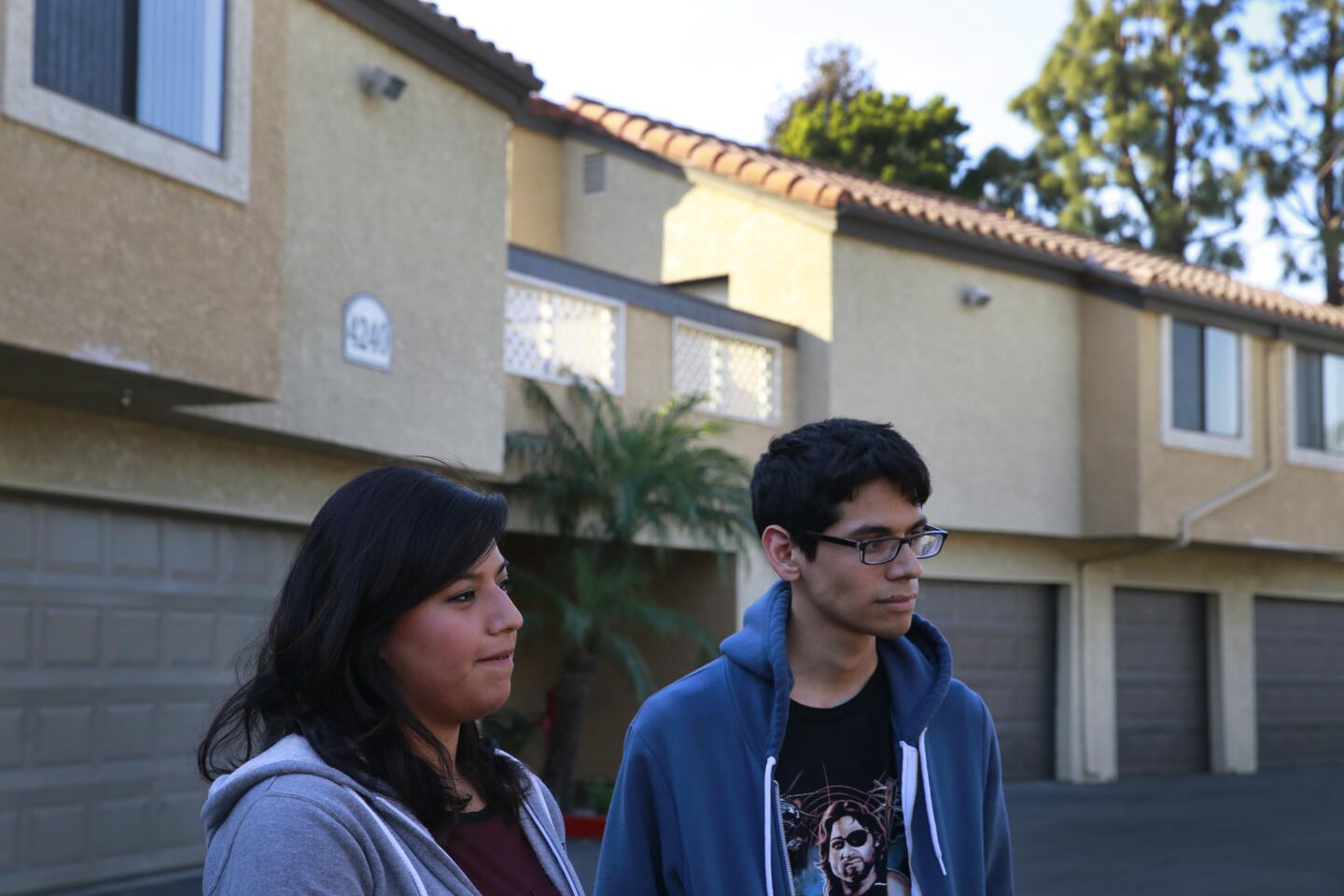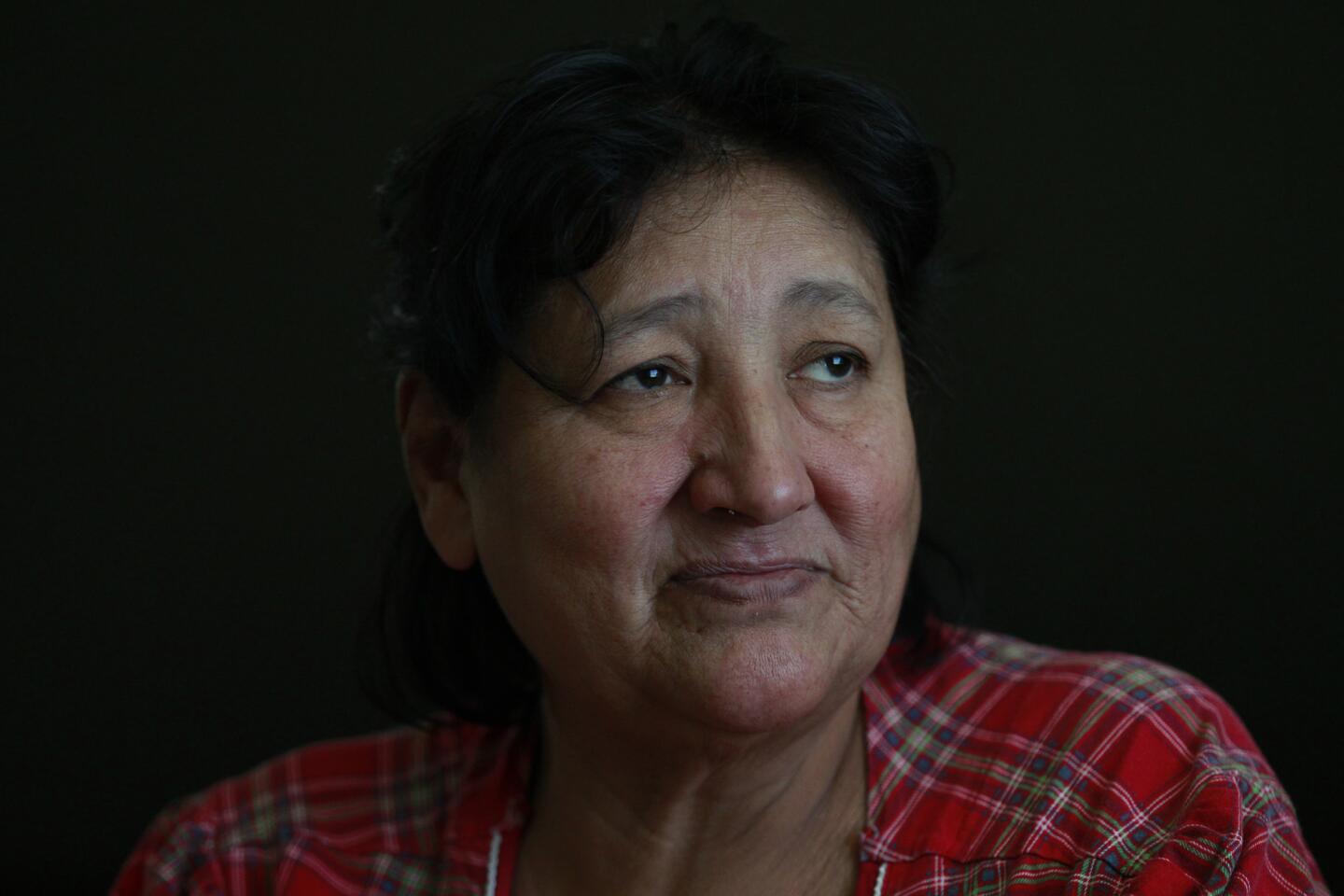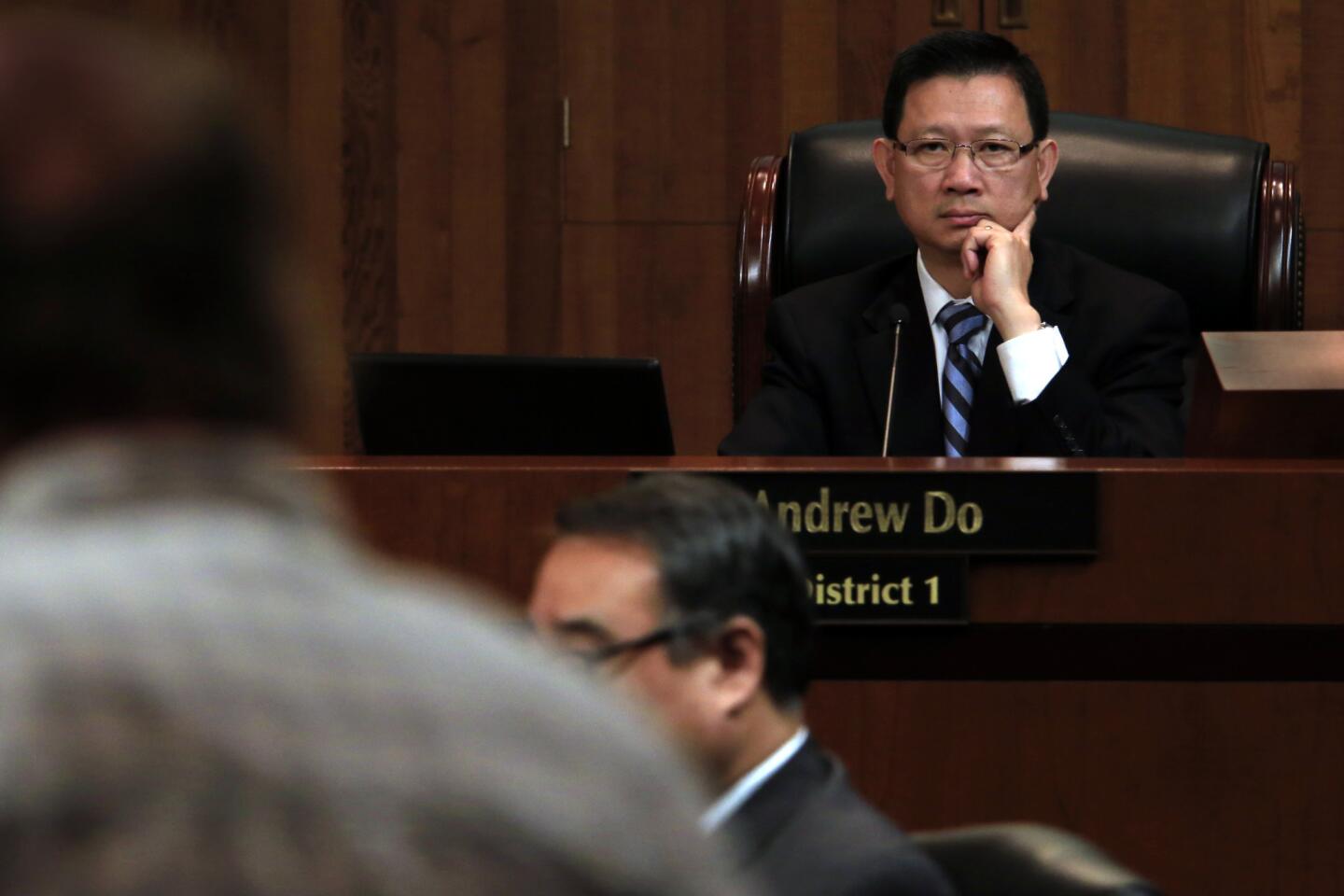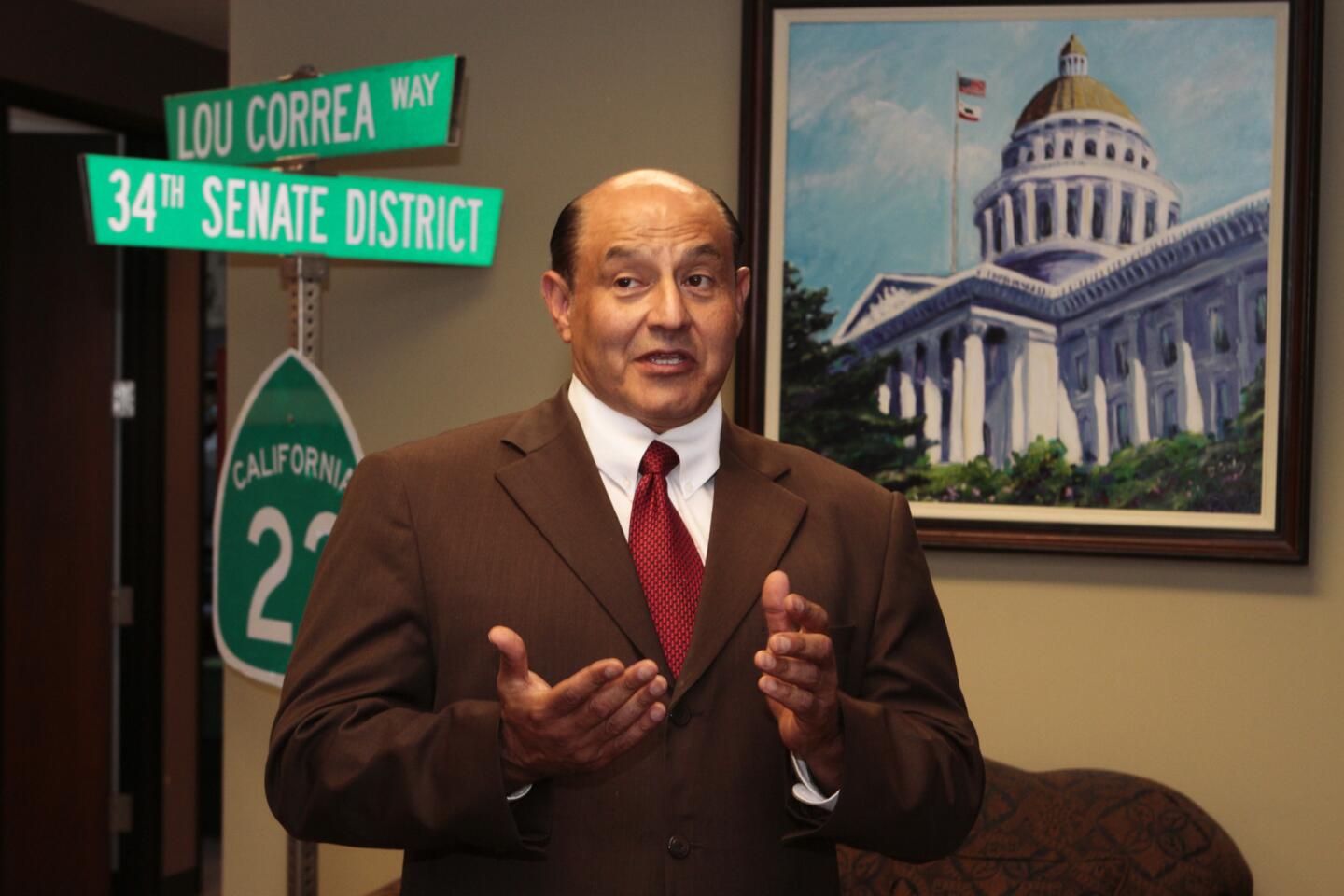Voter turnout disparity was key in razor-thin O.C. supervisor race
On paper, the race for Orange County supervisor seemed to be Lou Correa’s to win.
A former Democratic legislator who had served in both the state Assembly and Senate, Correa was a familiar and respected figure in Santa Ana, a city big enough to easily carry the race.
But when the final votes were tallied, a little-known Vietnamese American Republican won the race by 43 votes.
The upset marked a political earthquake in central Orange County, an ethnically diverse area dominated by Latinos in Santa Ana and Asian Americans in the Little Saigon area. It’s the only part of Orange County where Democrats hold a voter registration advantage over Republicans.
But a Los Angeles Times analysis of election results shows how Republicans can still win because Asian American voter turnout is so much higher than Latino turnout.
The outcome, the analysis found, turned on the high number of Santa Ana voters who failed to return the absentee ballots that had been mailed to them.
In the core of Santa Ana, where voting heavily favored Correa, only 22% of the absentee voters got around to returning their ballots, far below the state and county’s 50% return rate for absentee ballots in the 2014 general election. The unreturned ballots represented tens of thousands of votes.
Andrew Do, by contrast, got a big boost because more than 40% of the absentee voters in Little Saigon returned their ballots.
The special election swung nearly entirely on mail-in ballots, which made up about 84% of the total vote.
Democrats have been making dramatic inroads in the heart of the county since the mid-1990s, when Loretta Sanchez ousted prominent conservative Bob Dornan in a congressional race.
But the area is far from monolithic.
Santa Ana is a dense city of 330,000 residents. More than three-quarters are Latino, and less than a third are registered voters. It is solidly Democrat.
Little Saigon sprawls across parts of Santa Ana, Garden Grove, Fountain Valley and Westminster, representing the largest Vietnamese business and cultural district in America. The area has traditionally leaned to the right.
An analysis of the election shows voters tended to cast ballots along ethnic lines. In Santa Ana, 60% of the votes went to Correa. In one precinct, more than 80% voted for him.
In Little Saigon, Do captured 46% of the vote, a number that was almost certainly lowered by the competition from two other Vietnamese American candidates on the ballot.
But on election day, the Times analysis shows, voters in Little Saigon were just about twice as likely to vote than those in Santa Ana. In the bustling core of the Vietnamese-American enclave, an average of 28% of the voters went to the polls or mailed in ballots. In Santa Ana, only 16% of the registered voters cast ballots.
In the trenches, Do’s camp appeared to put up a vigorous get-out-the vote push.
Voters in Little Saigon said they were bombarded with Do mailers, reminders to vote and coverage of the race. There are about two dozen newspapers, magazines and radio and television stations that covered the race in Little Saigon, a community still so devoted to local newspapers that one professor calls it “a cafe society.”
Kathy Hoang said campaign volunteers practically hounded her, calling and knocking on her door inside the Bolsa Verde mobile home park in Little Saigon, handing her fliers and urging her to vote for Do.
“They said: He’s the No. 1 entry on the ballot. Make sure you check that box,” she remembered. “Everywhere I turned, I heard his name and saw his face.”
When Do’s canvassers appeared at his home, Westminster resident Phong Nhat Tran told them he’d already sent in his absentee ballot.
“Then they wanted to know if they could put a campaign sign outside,” the film director recalled. “Of course, I said yes.”
Louis Vu often heard Do’s voice when he tuned into Vietnamese-language radio while driving, and after a busy week at the Garden Grove shipping company where he worked, he’d find stacks of Do mailers at his door.
Over in Santa Ana, Rodrigo Alvarado and girlfriend Giselle Balderas said they didn’t receive a single mailer or a knock on their door. Balderas said she wasn’t even aware there was an election.
“I think I saw a sign about it, but it’s disappointing that we didn’t get any information in our mailbox,” said Alvarado. “Politicians should stay in touch with their voters.”
A couple of blocks away, Silvia Franco said she recalled voting for Correa in the past but that this time she was unaware he was even running for supervisor until election day.
“When did this vote come up?” Franco wondered. “I watch TV news all the time, and they never mentioned these people running.”
At the last minute, Franco said, she called her daughter and got a ride to the polling station and voted for Correa.
To some, Do’s victory seemed less a surprise than a continuing pattern.
In 2007, a relatively unknown Janet Nguyen won the same supervisorial seat against Tom Umberg, a two-time assemblyman with deep roots in Santa Ana. Umberg fell to a third-place finish in the race, lagging behind Nguyen and a second Vietnamese American candidate.
Last November, Jose Solorio — another Santa Ana political figure with Sacramento experience — was seen as a solid contender to claim the 34th District State Senate seat. He lost to Nguyen in a near landslide
During the campaign, Do — who had worked as Nguyen’s chief of staff — evoked his former boss’ name frequently, and she flew back from Sacramento to campaign for him in Little Saigon.
The success of Nguyen’s past campaigns probably demonstrated for Vietnamese voters the importance of participating in elections, said Dave Gilliard, a campaign consultant for both Do and Nguyen.
But experts remain conflicted on how to increase participation among Latinos. Only 12% of Latino voters cast ballots in the January election, whereas 41% of Vietnamese voters voted, according to statistics from Political Data Incorporated.
To help increase turnout overall and save on elections costs, Chapman University political science associate professor Fred Smoller had hoped the special election might shift to an all-mail vote.
But last year’s county supervisors voted down the idea. And Mindy Romero, director of the California Civic Engagement Project at UC Davis, said an all-mail election would not necessarily have increased Latino turnout because Asian Americans vote by mail more frequently.
Henry Vandermeier, chairman of Orange County’s Democratic Party, conceded that the party must quickly improve its outreach efforts if it hopes to hang onto its best foothold in a conservative county.
“We haven’t figured out what the catalyst is to boost Latino participation in politics and especially voting,” he said.
Alex Flores, field director for Correa’s campaign, said that when he knocked on doors in Latino neighborhoods across Santa Ana, he ran into a wall of apathy.
“People feel the government in their home countries never delivered. They said, ‘All politicians are the same; they’re corrupt.’ So they don’t bother” to vote.
“And because people don’t vote,” he added, “this is the outcome.”
